Video. Woodbine, Maryland, on Oct. 15, 2021. Equine Programs Director DeEtte Hillman shares more information about Days End Farm Horse Rescue and her close connections with the horses there. (Bethany Probst/Capital News Service)
EDITORS:
An Oct. 27 Capital News Service story on a horse rescue included reporting errors. The details are as follows:
A description of the facility as a sanctuary — which applies to places in which at least some animals are never adopted and do not leave — was incomplete. Though some horses may take years to rehabilitate and find adoptive homes, the rescue does not become a permanent home for them.
A sentence that indicated the Woodbine, Maryland, facility is in Carroll County was incorrect. It is in Howard County.
And reporting that characterized the $100,000 grant from the Maryland Board of Public Works as payments for a multi-part expansion and renovation of the facility was incorrect. That amount will be used as part of a down payment for a firehouse. Other monies approved by the Board of Public Works on separate occasions were for other improvements.
A corrected story follows:
CNS-HORSE-GRANT-CORRECTION — 590 words
Horse rescue will open new facility with $100,000 from state
EDITORS: CORRECTIONS throughout story. See advisory.
ANNAPOLIS, Md. — A horse rescue in Maryland plans to use a $100,000 state grant toward a down payment on a nearby vacant firehouse to expand their facilities.
Earlier last month, the Board of Public Works approved the grant to Days End Farm Horse Rescue in Woodbine, Maryland.
The rehabilitation facility takes in abused and neglected horses from animal protection groups statewide and trains them to prepare for adoption.
They also assist in evidence collection. Equine Programs Director DeEtte Hillman said that most of the cases brought to Days End are involved in criminal court cases involving animal abuse.
Currently, trainers are working outdoors with the horses year-round.
“Our poor trainers are training in the snow and in the … heat,” Development Director Caroline Robertson Herman said. “Weather permitting, they’ll continue to do their work, but if they can’t do it, it bottlenecks the entire process of getting these horses into homes.”
The facility is planning significant improvements and renovations. Hillman said an indoor area could revolutionize education efforts at the facility as well.
“Our education programs can also be rescheduled and pushed due to weather,” Hillman said. “There is no other facility in the state of Maryland where professionals in the animal welfare industry can get hands on with horses (for) learning. That is a very high need and demand and so not having a space that is out of the elements can impact those opportunities.”
According to Herman, the facility’s current classroom can only hold 40 to 60 people, although the farm hosts 100 to 200 boy and girl Scouts at once a couple of times each year to teach them about horse rehabilitation. Due to the lack of space, they welcome these scouts outside.
“We sit there with our fingers crossed and hope there’s not a downpour,” she said.
The horse farm plans to take over a nearby vacant fire station to accommodate these events. The $100,000 will be used toward a down payment for that property.
Herman said last month that Days End was close to a deal with Lisbon Fire Department to accommodate new administrative offices, as there were staff working remotely due to lack of space. The firehouse, in Woodbine, was empty and ready for Days End to move in, said Herman.
She said the bottom of the firehouse, where truck bays are, will be the new welcome center.
Hillman said about 70 horses come into Days End each year, and 50 get adopted.
Some get adopted rather quickly, and others may take years, but the goal is for all the animals to have new homes.
According to Herman, the horses go through rehab for four to five months, with the additional training and adoption taking an additional five months. She said although the cost of rehab is $1,900 to $2,500 per month for a horse, Days End does not charge money to community members or staff who need or want education on how to care for suffering horses.
The state gave an additional $400,000 to the farm for its improvements in September.
The development director said that horse clinicians have wanted to partner with the facility, but many require indoor facilities in order to perform proper assessments of the horses.
Herman said with the grant for the new building, Days End plans to implement interactive education simulations to show what an emaciated horse looks like and a timeline of horses throughout history.
“We’re looking to see a big boom in education once that is built,” she said.
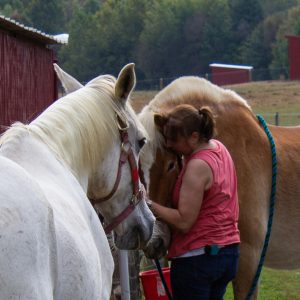
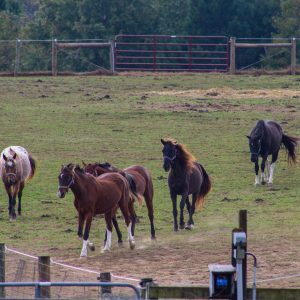
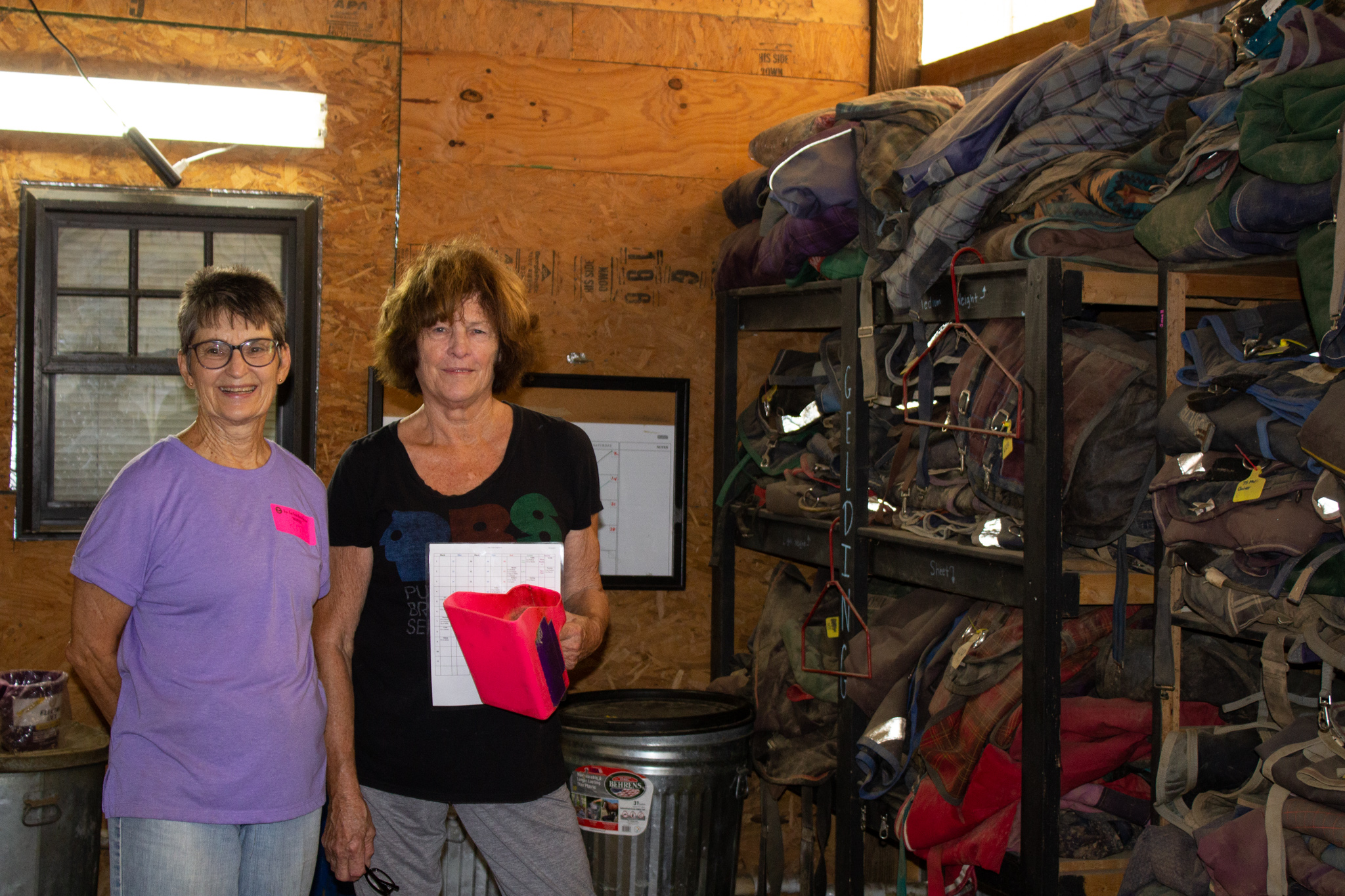
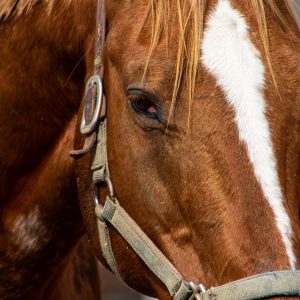
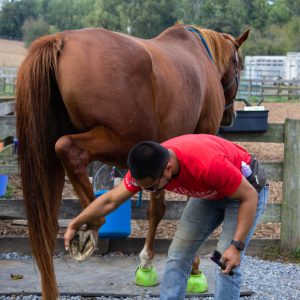

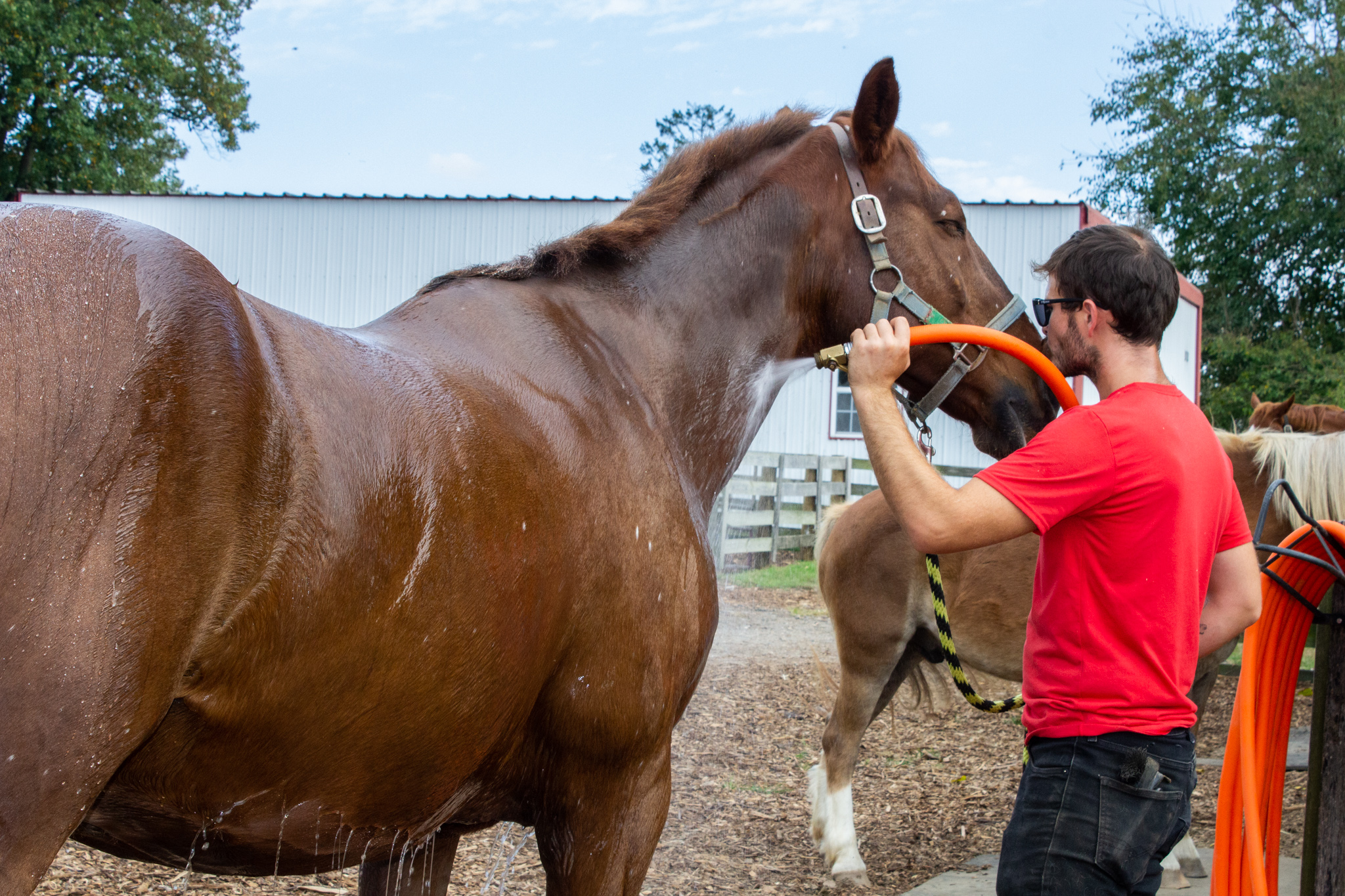

You must be logged in to post a comment.